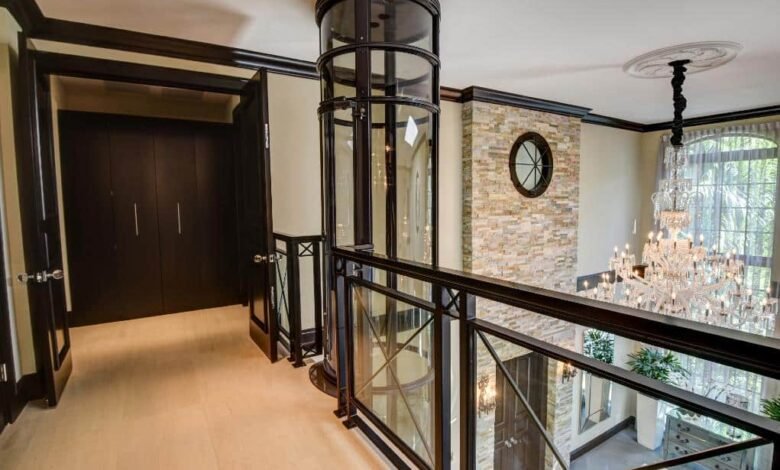Tips for Adding a Home Elevator

Adding a home elevator isn’t just a luxury upgrade—it can significantly improve safety, accessibility, and home value, especially for multi-level properties. Whether you’re looking to accommodate mobility challenges, future-proof your residence, or simply enjoy added convenience, a residential elevator can be a smart investment. For homeowners in South Carolina’s coastal areas, especially places like Sullivan’s Island, CHS Elevators offers expert installation services tailored to local building codes and architectural styles.
Let’s explore the key considerations when installing a home elevator, the types available, and why working with a specialized local company is critical for a successful project.
Why Consider a Home Elevator?
A home elevator brings both immediate and long-term advantages. It’s a practical solution for aging-in-place, reduces the risk of injuries from stairs, and adds a unique selling point for real estate.
1. Increased Accessibility
For individuals with mobility issues or families planning for future aging needs, an elevator offers safe, effortless access between floors.
2. Improved Home Value
Properties with elevators often command higher resale prices, especially in luxury or coastal markets like Sullivan’s Island, Charleston, and Mt. Pleasant.
3. Convenience and Efficiency
Carrying laundry, groceries, or heavy items up and down stairs is no longer a hassle. An elevator makes daily living more efficient.
4. Design Integration
Today’s residential elevators come in sleek, compact models that fit beautifully into modern or traditional home designs.
See also: Smart Home Control Systems in Commercial Spaces: A New Way to Work Smarter
Is Your Home a Good Fit?
Many homeowners worry about whether their property can accommodate an elevator. The good news? In most cases, yes. Residential elevators have come a long way in terms of size, layout, and energy usage.
✔ New Construction or Remodeling
Elevators can be easily incorporated into new homes or major remodels. Working with your builder or architect early in the process helps optimize space.
✔ Retrofitting Existin#g Homes
Even if your house wasn’t designed for an elevator, compact models can often be added with minimal construction impact—usually by converting closets, stairwells, or unused corners.
✔ Space Requirements
Some elevators require as little as 15–20 square feet. Shaftless and through-the-floor models are ideal for tighter spaces or two-story homes.
✔ Power Supply
Most home elevators operate on a standard 220V power supply and can be connected to a backup generator for power outage protection.
Common Types of Residential Elevators
Understanding the different types of elevators can help you choose the best model for your needs and budget.
🛗 Hydraulic Elevators
- Smooth and quiet ride
- Good for heavier loads
- Requires a machine room
- Typically more expensive to install
🛗 Traction Elevators
- Uses counterweights and cables
- More energy-efficient
- No need for a machine room
- Can serve multiple floors easily
🛗 Pneumatic (Vacuum) Elevators
- Modern, space-saving design
- No pit or machine room required
- Best for two- to three-story homes
- Easy to install with minimal construction
🛗 Shaftless Elevators
- Ideal for existing homes
- Very compact footprint
- Lower installation cost
- Limited to two floors
What to Expect During Installation
Installing a home elevator involves careful planning, but a professional team can streamline the process.
1. Site Evaluation
An installer visits your home to assess space, structure, and electrical systems.
2. Design & Permits
You’ll select a model, layout, finishes, and get help with permits. In South Carolina, coastal areas like Sullivan’s Island may have specific code requirements due to wind, flooding, or historic preservation rules.
3. Construction & Installation
This may involve minor framing, wiring, and flooring adjustments. Installers coordinate with contractors to minimize disruptions.
4. Testing & Handover
The elevator is tested for safety, certified, and turned over with full instructions for maintenance and operation.
Maintenance & Safety Tips
Like any major home appliance, a residential elevator needs periodic servicing.
✔ Annual Inspections
Ensure the lift mechanism, doors, and safety sensors are working properly.
✔ Cleaning & Lubrication
Dust or grime buildup can affect performance. Routine cleaning helps extend equipment life.
✔ Emergency Plans
Make sure you and your family know how to use emergency features, including alarms, phones, and manual lowering mechanisms.
Home Elevator Design Options
Today’s home elevators are more than functional—they’re stylish additions to your home.
🏠 Cab Styles
Choose from traditional wood finishes, modern glass panels, or minimalist aluminum.
🎨 Customization
Custom flooring, lighting, control panels, and wall materials can match your home’s interior design.
🚪 Doors & Gates
Options include automatic sliding doors, accordion gates, or glass doors for a sleek look.
Why Go Local with CHS Elevators?
If you’re based in South Carolina—especially along the coast—you’ll benefit from choosing a local provider like CHS Elevators for several reasons:
✔ Local Code Knowledge
CHS understands state and municipal building codes, zoning regulations, and ADA guidelines specific to Charleston County and surrounding areas.
✔ Fast, Responsive Service
Being nearby means quicker installations, faster repairs, and face-to-face support when you need it most.
✔ Trusted Reputation
As a regional expert, CHS Elevators has a portfolio of satisfied clients and successful installations across homes on Sullivan’s Island, Isle of Palms, and Charleston.
✔ Coastal-Ready Solutions
From corrosion-resistant parts to storm preparation features, CHS Elevators builds elevators that last in the Lowcountry’s humid, salty air.
Final Thoughts
Installing a home elevator is a smart move that enhances accessibility, boosts property value, and improves daily living—especially in multi-story coastal homes. From compact shaftless models to luxurious glass elevators, the right design depends on your space, lifestyle, and long-term needs.
If you’re considering a residential elevator in South Carolina, chselevators.com is a reliable local expert ready to help you explore your options and install with confidence.





